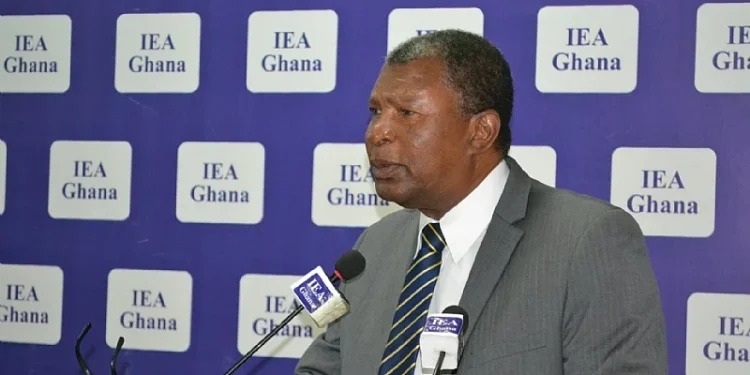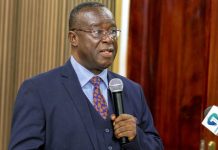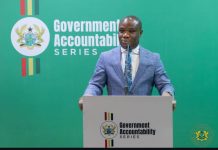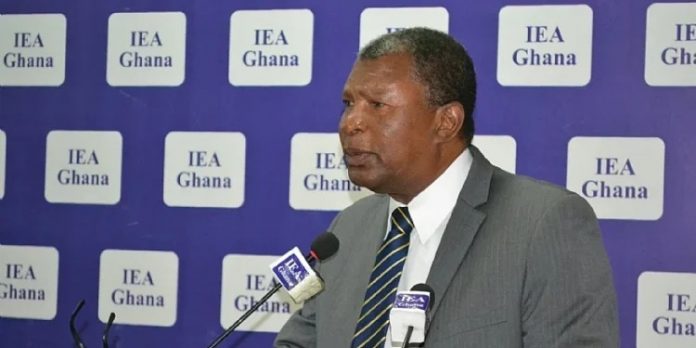
The Institute of Economic Affairs (IEA) has cautioned that Ghana’s rapidly growing population is putting immense pressure on the country’s fiscal framework, complicating efforts to achieve significant expenditure cuts.
Ghana’s population has grown five-fold in just over six decades, from 6.7 million in 1960 to more than 34 million in 2025.
This demographic boom, according to the IEA, has sharply increased demand for education, healthcare, housing, and public infrastructure, leaving government with limited flexibility to reduce spending without jeopardising essential services.
Board Chairman of the IEA, Dr. Charles Mensa, explained that the calls for austerity often ignore these structural realities.
“Our expenditure will keep on growing, and it should grow as a people. We started with 5 million people during the days of Nkrumah and today we are 33 million. We need to build more roads, more hospitals, more schools. So when I hear people say cut expenditure; I ask, which one should we cut?” he said.
Dr. Mensa emphasised that the long-term solution lies not in relentless austerity but in strengthening domestic revenue mobilisation.
He urged government to secure greater ownership and control of Ghana’s natural resources to boost revenue streams and reduce dependence on borrowing. “Our best way forward is to own our resources. Until we own our resources it is going to be very difficult to generate enough revenue to meet our growing expenditure,” he stressed.
While the IMF and World Bank have not explicitly directed Ghana to slash spending, their financial support programs require strict fiscal discipline and expenditure optimisation. Ghana is currently under the IMF’s $3 billion Extended Credit Facility (ECF), alongside World Bank-backed initiatives, both aimed at stabilising the economy, restoring debt sustainability, and rebuilding investor confidence.
Since entering the IMF programme, the government has signalled its commitment to rationalising expenditure by capping ministerial appointments at 60, limiting non-essential foreign travel, and tightening procurement guidelines. However, analysts warn that such measures may only provide temporary relief if structural revenue gaps are not addressed.
With the population projected to exceed 40 million by 2035, the IEA insists that Ghana must urgently reform its revenue strategy, particularly by maximising returns from oil, gas, and mineral resources, expanding the tax net, and curbing illicit financial flows.
The think tank concluded that without decisive action, Ghana risks being trapped in a cycle of rising demand, widening deficits, and increased borrowing, further constraining fiscal policy choices in the years ahead.























































![[FREE FREE MONEY] Predict and Win a Guaranteed GH¢200 From Us EVERY WEEK](https://wordpress.ghanatalksradio.com/wp-content/uploads/2022/02/Predict-and-Win-Final-09-03-2021-218x150.jpg)
![[Predict & Win – 8th/Oct.] WIN A Guaranteed ¢200 From Us This Week](https://wordpress.ghanatalksradio.com/wp-content/uploads/2021/10/maxresdefault-16-218x150.jpg)
![[Predict & Win – 2nd] WIN A Guaranteed ¢200 From Us This Week](https://wordpress.ghanatalksradio.com/wp-content/uploads/2021/09/maxresdefault-50-218x150.jpg)
![[Predict & Win – 25th] WIN A Guaranteed ¢200 From Us This Week](https://wordpress.ghanatalksradio.com/wp-content/uploads/2021/09/maxresdefault-36-218x150.jpg)
![[Predict & Win – 18th] WIN A Guaranteed ¢200 From Us This Week](https://wordpress.ghanatalksradio.com/wp-content/uploads/2021/09/maxresdefault-23-218x150.jpg)









![[National cathedral] See full list of churches that have contributed since 2018](https://wordpress.ghanatalksradio.com/wp-content/uploads/2020/09/Ghana-National-Cathedral-GhanaTalksRadio-100x70.jpg)



